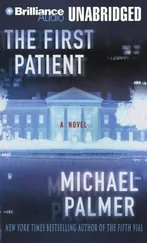Michael Ondaatje - The English Patient
Здесь есть возможность читать онлайн «Michael Ondaatje - The English Patient» весь текст электронной книги совершенно бесплатно (целиком полную версию без сокращений). В некоторых случаях можно слушать аудио, скачать через торрент в формате fb2 и присутствует краткое содержание. Жанр: Старинная литература, на русском языке. Описание произведения, (предисловие) а так же отзывы посетителей доступны на портале библиотеки ЛибКат.
- Название:The English Patient
- Автор:
- Жанр:
- Год:неизвестен
- ISBN:нет данных
- Рейтинг книги:4 / 5. Голосов: 1
-
Избранное:Добавить в избранное
- Отзывы:
-
Ваша оценка:
- 80
- 1
- 2
- 3
- 4
- 5
The English Patient: краткое содержание, описание и аннотация
Предлагаем к чтению аннотацию, описание, краткое содержание или предисловие (зависит от того, что написал сам автор книги «The English Patient»). Если вы не нашли необходимую информацию о книге — напишите в комментариях, мы постараемся отыскать её.
The English Patient — читать онлайн бесплатно полную книгу (весь текст) целиком
Ниже представлен текст книги, разбитый по страницам. Система сохранения места последней прочитанной страницы, позволяет с удобством читать онлайн бесплатно книгу «The English Patient», без необходимости каждый раз заново искать на чём Вы остановились. Поставьте закладку, и сможете в любой момент перейти на страницу, на которой закончили чтение.
Интервал:
Закладка:
She sniffs the stone, the cool moth smell of it.
Did her father struggle into his death or die calm? Did he lie the way the English patient reposes grandly on his cot? Was he nursed by a stranger? A man not of your own blood can break upon your emotions more than someone of your own blood. As if falling into the arms of a stranger you discover the mirror of your choice. Unlike the sapper, her father was never fully comfortable in the world. His conversations lost some of their syllables out of shyness. In any of Patrick’s sentences, her mother had complained, you lost two or three crucial words. But Hana liked that about him, there seemed to be no feudal spirit around him. He had a vagueness, an uncertainty that allowed him tentative charm, He was unlike most men. Even the wounded English patient had the familiar purpose of the feudal. But her father was a hungry ghost, liking those around him to be confident, even raucous.
Did he move towards his death with the same casual sense of being there at an accident? Or in fury? He was the least furious man she knew, hating argument, just walking out of a room if someone spoke badly of Roosevelt or Tim Buck or praised certain Toronto mayors. He had never attempted to convert anyone in his life, just bandaging or celebrating events that occurred near him. That was all. A novel is a mirror walking down a road. She had read that in one of the books the English patient recommended, and that was the way she remembered her father—whenever she collected the moments of him—stopping his car under one specific bridge in Toronto north of Pottery Road at midnight and telling her that this was where the starlings and pigeons uncomfortably and not too happily shared the rafters during the night. So they had paused there on a summer night and leaned their heads out into the racket of noise and sleepy chirpings.
I was told Patrick died in a dove-cot, Caravaggio said.
Her father loved a city of his own invention, whose streets and walls and borders he and his friends had painted. He never truly stepped out of that world. She realizes everything she knew about the real world she learned on her own or from Caravaggio or, during the time they lived together, from her stepmother, Clara. Clara, who had once been an actress, the articulate one, who had articulated fury when they all left for the war. All through the last year in Italy she has carried the letters from Clara. Letters she knows were written on a pink rock on an island in Georgian Bay, written with the wind coming over the water and curling the paper of her notebook before she finally tore the pages out and put them in an envelope for Hana. She carried them in her suitcase, each containing a flake of pink rock and that wind. But she has never answered them. She has missed Clara with a woe but is unable to write to her, now, after all that has happened to her. She cannot bear to talk of or even acknowledge the death of Patrick.
And now, on this continent, the war having travelled elsewhere, the nunneries and churches that were turned briefly into hospitals are solitary, cut off in the hills of Tuscany and Umbria. They hold the remnants of war societies, small moraines left by a vast glacier. All around them now is the holy forest.
She tucks her feet under her thin frock and rests her arms along her thighs. Everything is still. She hears the familiar hollow churn, restless in the pipe that is buried in the central column of the fountain. Then silence. Then suddenly there is a crash as the water arrives bursting around her.
The tales Hana had read to the English patient, travelling with the old wanderer in Kim or with Fabrizio in The Charterhouse of Parma , had intoxicated them in a swirl of armies and horses and wagons—those running away from or running towards a war. Stacked in one corner of his bedroom were other books she had read to him whose landscapes they have already walked through.
Many books open with an author’s assurance of order. One slipped into their waters with a silent paddle.
I begin my work at the time when Servius Galba was Consul … The histories of Tiberius, Caligula, Claudius and Nero, while they were a power, were falsified through terror and after their death were written under afresh hatred .
So Tacitus began his Annals .
But novels commenced with hesitation or chaos. Readers were never fully in balance. A door a lock a weir opened and they rushed through, one hand holding a gunnel, the other a hat.
When she begins a book she enters through stilted doorways into large courtyards. Parma and Paris and India spread their carpets.
He sat, in defiance of municipal orders, astride the gun Zam-Zammah on her brick platform opposite the old Ajaib-Gher—the Wonder House, as the natives called the Lahore Museum. Who hold Zam-Zammah, that “fire-breathing dragon,” hold the Punjab; for the great green-bronze piece is always first of the conqueror’s loot .
“Read him slowly, dear girl, you must read Kipling slowly. Watch carefully where the commas fall so you can discover the natural pauses. He is a writer who used pen and ink. He looked up from the page a lot, I believe, stared through his window and listened to birds, as most writers who are alone do. Some do not know the names of birds, though he did. Your eye is too quick and North American. Think about the speed of his pen. What an appalling, barnacled old first paragraph it is otherwise.”
That was the English patient’s first lesson about reading. He did not interrupt again. If he happened to fall asleep she would continue, never looking up until she herself was fatigued. If he had missed the last half-hour of plot, just one room would be dark in a story he probably already knew. He was familiar with the map of the story. There was Benares to the east and Chilianwallah in the north of the Punjab. (All this occurred before the sapper entered their lives, as if out of this fiction. As if the pages of Kipling had been rubbed in the night like a magic lamp. A drug of wonders.)
She had turned from the ending of Kim , with its delicate and holy sentences—and now clean diction—and picked up the patient’s notebook, the book he had somehow managed to carry with him out of the fire. The book splayed open, almost twice its original thickness.
There was thin paper from a Bible, torn out and glued into the text.
King David was old and stricken in years and they covered him with clothes but he received no heat .
Whereupon his servants said, Let there be sought for the King a young virgin: and let her cherish him, and let her lie in this bosom, that our King may have heat .
So they sought for a fair damsel throughout all the coasts of Israel, and found Abishag a Shunammite. And the damsel cherished the King, and ministered to him: but the King knew her not .
The ______tribe that had saved the burned pilot brought him into the British base at Siwa in 1944. He was moved in the midnight ambulance train from the Western Desert to Tunis, then shipped to Italy. At that time of the war there were hundreds of soldiers lost from themselves, more innocent than devious. Those who claimed to be uncertain of their nationalities were housed in compounds in Tirrenia, where the sea hospital was. The burned pilot was one more enigma, with no identification, unrecognizable. In the criminal compound nearby they kept the American poet Ezra Pound in a cage, where he hid on his body and pockets, moving it daily for his own image of security, the propeller of eucalyptus he had bent down and plucked from his traitor’s garden when he was arrested. “ Eucalyptus that is for memory.”
“You should be trying to trick me,” the burned pilot told his interrogators, “make me speak German, which I can, by the way, ask me about Don Bradman. Ask me about Marmite, the great Gertrude Jekyll.” He knew where every Giotto was in Europe, and most of the places where a person could find convincing trompe l’oeil.
Читать дальшеИнтервал:
Закладка:
Похожие книги на «The English Patient»
Представляем Вашему вниманию похожие книги на «The English Patient» списком для выбора. Мы отобрали схожую по названию и смыслу литературу в надежде предоставить читателям больше вариантов отыскать новые, интересные, ещё непрочитанные произведения.
Обсуждение, отзывы о книге «The English Patient» и просто собственные мнения читателей. Оставьте ваши комментарии, напишите, что Вы думаете о произведении, его смысле или главных героях. Укажите что конкретно понравилось, а что нет, и почему Вы так считаете.












